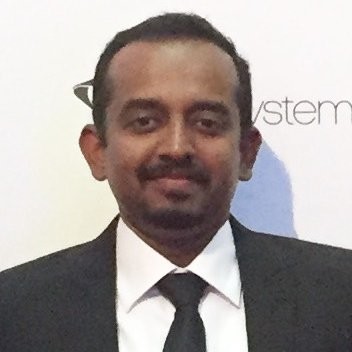Or listen in your favorite podcast app
Apple Podcasts / Google Podcasts / Spotify
Hey Google, tell me the last time the Chicago Cubs won the World Series… Digital assistants, we’ve all used them for varying things. Maybe it was scheduling an alarm or checking the weather, and as time goes on, the uses of these assistants continue to evolve. They reside on our desktops, within our phones, and in the speaker that sits on our countertops, and as this digital workforce sits ready in the wings, why are consumers refusing to adopt it at the rate of other technologies? Luckily, Ram Palaniappan of TEKsystems is here to answer those questions. On this episode of IT Visionaries, Ram discusses how he and his team are modernizing the digital workforce with an eye on humanization, and why unstructured data sets are unlocking more doors for today’s companies.
Key Takeaways
- The main concern with the digital workspace is not about automation, it’s about adoption.
- Voice assistants are just starting to scratch the surface of their capabilities.
- Companies like Uber and Airbnb have changed the structure of how businesses now operate.
For an in-depth look at this episode, check out the article below.
—–
“Hey Google, can you reschedule my 3 p.m. for tomorrow? And can you remind me what I need to pick-up at the grocery store?”
In 2020, digital assistants continue to infiltrate our daily lives. They reside on our desktops, our tablets, and within our phones. But while these assistants continue to lurk beneath consumer devices, rarely are they being adopted as intended or being optimized to their full potential. TEKsystems’ Global Practice Leader for Data, Analytics and Insights Ram Palaniappan joined IT Visionaries to help us understand why that is. He also discussed why humanization in the digital space continues to be a focus, why we are only at the beginning stages of a digital voice renaissance, and how unstructured data is changing the way companies utilize feedback
Palaniappan has been at TEKsystems — a provider of IT services that address the pressing strategy, implementation and talent needs for more than 80% of the Fortune 500 — for more than a decade and utilizes data, analytics, and insights to help customers on their personal and modernization journeys.
According to Palaniappan, one of those biggest challenges he faces is humanizing the digital workforce, and making it more efficient so clients can spend less time analyzing problems and more time solving them. So how do you reduce hours of work to simplify it? That’s where new technologies like artificial intelligence are being utilized.
“We are seeing the potential for reparative work, where we can look at cutting them down completely,” Palaniappan said. “Primarily because you will rarely have analyzed and you haven’t delivered that answer or that response other than offloading that to a digital workforce.”
While chatbots are not new, and they are helping organizations solve problems with more velocity, Palaniappan says they continue to give binary answers. Something TEKsystems is working on in order to continually raise the bar.
“I think the digital workforce is something which compliments, and supplements, and augments our work at the same time,” Palaniappan said. “It also brings in that humanization power to the conversation and makes you trust that conversation, even if it is a machine.”
In that same vein, Palaniappan said another concern centers around a consumer’s and client’s ability to feel like they are having a personalized experience and that they are not being directed to a digital service.
“It’s not a worry about automation, it is always about adoption,” Palaniappan said. “If it is more humanized in nature from the conversation perspective, where the person sitting on the other side doesn’t know that he is talking to a machine, it becomes more comfortable for them and that’s where you can realize more value from your technology and the investments.”
One way TEKsystems is working to solve that issue revolves around digital assistants. Over the last several years, TEKsystems has worked with companies such as Salesforce and Google, to modernize their digital assistants. And while Palaniappan says they have taken great strides with voice systems, the technology is still in the early stages of development.
Palaniappan said that the social adoption of voice has seen the most progress, and he believes that over the next several years there will be a spike in the use of voice assistants. He also said that those assistants will have functionality that is better able to mimic an actual human conversation.
As voice assistants continue to infiltrate consumers’ daily lives, there is more data to analyze based on the evolving use cases. Companies’ use of that data and how they are analyzing feedback has never been greater.
Palaniappan stressed that databases used to struggle with organizing unstructured data points, but that has changed over the last five to six years, as companies such as Facebook and Google, which are focused on social media, have been able to expand the reach of their data sets.
“You can get to the level of what they are saying, why they are saying it and what is the intent, what is the context on which they are seeing and that can primarily give a lot more intelligence in terms of improving our product, improving your service and improving even your approach to your customers,” Palaniappan said. “Any company today can handle feedback really well.”
Companies that are able to analyze and utilize all of that data will move forward, and so too will the population, which gets more used to using voice technology every day.




